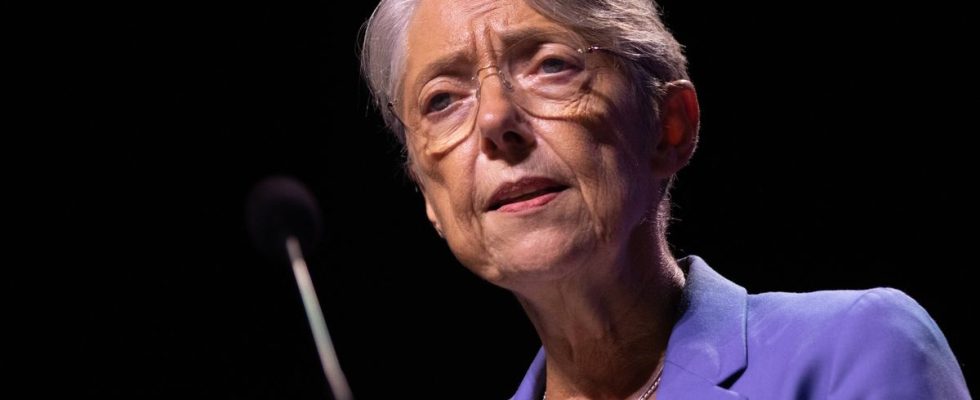A new plan. The Prime Minister, Elisabeth Borne, presented on Monday the final version of the “national biodiversity strategy” (SNB). This third SNB, awaited for two years, must follow on from the first two, the objectives of which were not achieved. Some associations, however, judged this strategy to be insufficient in reducing environmentally damaging agricultural subsidies, for which the government promises the development in 2024 of a “gradual” reorientation or elimination plan.
“The collapse of biodiversity is so strong, so rapid, so widespread that a sixth extinction threatens […] In a word, the collapse of biodiversity is an existential threat to our societies. We must stem it quickly and strongly reverse the trend,” declared the head of government, presenting 40 measures intended to safeguard nature and “stop the collapse of life” by 2030.
But she wanted the objectives to follow “the same principle: the radicality of the results without the brutality of the measures”, leaving Minister Christophe Béchu (Ecological Transition) and Secretary of State Sarah El Haïry (Biodiversity) to specify the contours.
This strategy is supposed to be the French version of the Kunming-Montreal agreement, adopted in December 2022 by the international community at COP15 Biodiversity: effective protection of 30% of lands and seas, restoration of 30% of degraded ecosystems, reduction half of pesticides, etc.
Soon a new national park
The main axes of the plan aim to have more protected areas, including a twelfth national park dedicated to wetlands, the location of which will finally be known in the spring, six months late. Three territories were selected: Camargue, Loire and Guyana.
The objective is also to restore nature, with a billion trees planted, 50,000 km of additional hedges, or even islands of freshness in schools, and to further mobilize businesses and youth, by welcoming from here by 2030 10,000 young people aged 16-25 in civic service “Young people and nature”.
On subsidies harmful to biodiversity, Secretary of State for Biodiversity Sarah El Haïry promised a “mission” in 2024 with the Ministries of Economy and Agriculture to “reorient” them towards supporting the ecological transition.
“We were hoping for a major agricultural plan where we change the paradigm…”
Allain Bougrain-Dubourg, president of the National League for the Protection of Birds (LPO) deplored the government’s procrastination on this subject. “We were hoping for a major agricultural plan where we change the paradigm, therefore frustration,” he commented. For him, the consultation planned on this subject “is detrimental to the ambition” of the SNB. He also asked the question of banning hunting in areas with strong protection.
Michael Weber, president of the federation of regional parks and PS senator from Moselle, deplored the absence of the Minister of Agriculture, Marc Fesneau. “If we can subsidize everything we have in terms of agricultural policies that impact (negatively) on the environment, it’s useless,” he said. “We can always want to do more, the fact is that we have never done so much,” replied Christophe Béchu.
Conversely, the president of the chambers of agriculture, Sébastien Windsor, welcomed a desire to “take on board and not impose”, so as to “not put nature under cover and not stigmatize this or that profession”.
Budget increase
The Prime Minister confirmed that one billion euros would be devoted to protecting nature and water in 2024, an increase of 250 million euros. Additional needs in 2027 are estimated at 450 million euros.
The government wants to place 10% of the national territory under “strong protection” by 2030 (compared to 4.2% in 2023). Ms. El Haïry also mentioned the creation of Tracnat, a service to fight against the illegal trade in natural resources.
Christophe Béchu highlighted the “unprecedented” creation of 141 jobs, although “not up to what has been eliminated” over the last twenty years.
Among the new features of the plan, an action to “reduce underwater noise pollution” will be undertaken with shipping companies but also recreational activities in marine protected areas, particularly in the Mediterranean for motorized competitions, such as jet-skis, from 2024.

